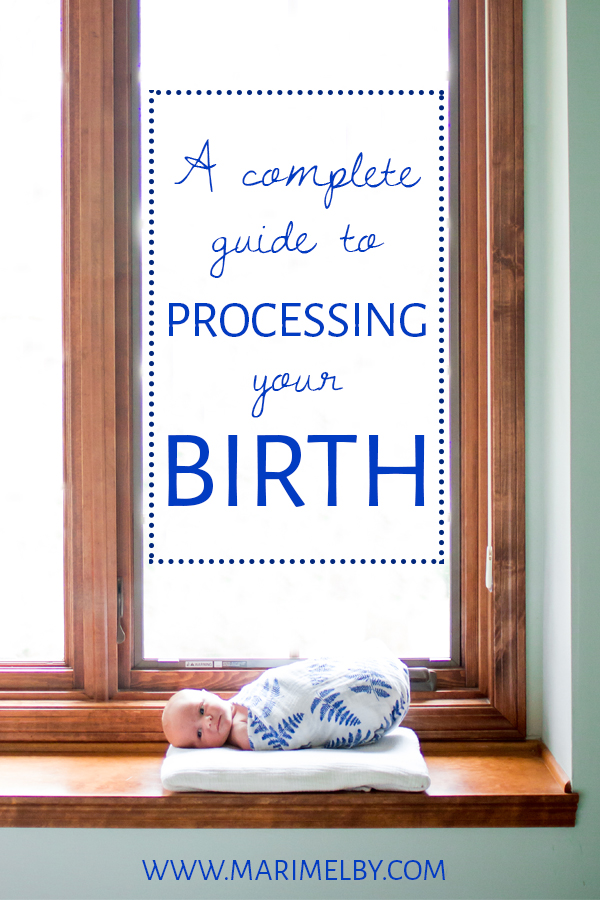The birth of my son was unexpected and did not go at all how I had planned or hoped. It took a long time for me to heal from the experience. Now in my work as a childbirth educator and doula, I see a deep need for mamas to process their birth experiences in a setting that is safe, supportive, and validating.
Who needs to process their birth?
Everyone. Literally every person who has given birth needs to set aside some time to process the experience. Even if a birth seems to have gone smoothly to others in the room, the birther may still have experienced disappointment, guilt, shame, or trauma at some point during her pregnancy, birth, or postpartum experience. While these feelings may be more prevalent following births with unexpected outcomes, even an insensitive comment from a care provider can harm someone during their birth.
Why is it important to process your birth?
In our culture, we don’t know how to talk about birth experiences in a way that feels good or promotes healing. The canned response we give after hearing a birth story, particularly one that didn’t go as planned, is, “Well, at least you and the baby are healthy!” Yes, it’s true: it’s great that mama and baby are healthy, but this response negates and ignores any trauma or emotional pain that the birther may have suffered. In fact, it can make a birther feel even MORE guilty for harboring any feelings of shame over her birth experience. A person might harbor these feelings for years. This is all because they were not given the opportunity to process the experience, find ways to appreciate and grow from it, and ultimately, move on. I find it particularly important for mamas to process their birth experience before giving birth again, so that the emotions from the first birth do not invade the space of the labor and delivery room the next time around.
How can I process my birth?
There are three main ways to accomplish this:
1. Write your birth story. Many women feel that writing about their difficult birth experience is a great way to begin to process it. This was my first step in processing the unexpected birth of my son, which you can read here.
2. Pursue short-term therapy with a licensed counselor. It’s great to find someone who specializes in issues related to pregnancy and postpartum. Blooma has therapists at the St. Paul and Minneapolis locations that are available for help and support. Here are some other great resources for qualified therapists in the Twin Cities.
3. Attend a Process Your Birth workshop at Blooma. Through guided meditation, reflective journaling, and small group sharing in a safe and supportive space, we will begin to process your birth. Your birth story includes your pregnancy, birth, and postpartum experience. This class is appropriate whether you gave birth a few weeks ago or a few decades ago. Please visit our schedule to see all the upcoming dates in 2017 for this workshop.
P.S. You might also like 3 Things To Have in Your Car by 36 Weeks
This post was first published on Blooma.com.

